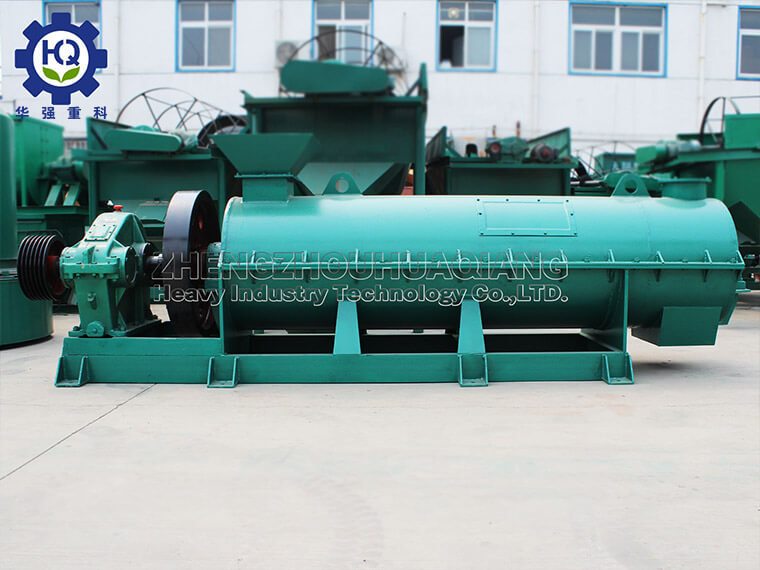Properly maintain the organic fertilizer granulator to prolong the service life of the equipment
Organic fertilizer granulator machine occupy an important position in the entire organic fertilizer production line. Organic fertilizer granulators are divided into drum granulators, flat die granulators, extrusion granulators, disc granulators, etc. Although the working principles are different, the daily maintenance methods are basically the same. We do a good job of organic fertilizer The purpose of the daily maintenance of the granulator is to reduce and avoid equipment damage and economic losses caused by organic fertilizer production operations. So how to maintain the organic fertilizer granulator in daily use?.jpg)
Maintenance method of organic fertilizer granulator machine:
1. Keep the work site clean. After each test of the organic fertilizer equipment, the residual rubber sand inside and outside of the granulating leaves and the granulation pot should be completely removed. The rubber sand and the flying objects scattered or splashed on the organic fertilizer equipment should be cleaned. The exposed working surface of the machine is wiped clean, coated with anti-rust meat paint, and covered with a corresponding cover to prevent secondary intrusion of dust.
2. Organic fertilizer equipment has no external refueling holes. Gears and worm gears are lubricated with special grease for organic fertilizer equipment. The upper gear and the lower gear should be filled with butter three times every season, and the moving gear box cover and the transmission gear cover can be opened separately when refueling). Oil should be lubricated from the sliding surface between the supporting gear box and the sliding surface of the bracket. Worm gearboxes and bearings have been filled with transmission butter when they leave the factory, but the gearbox machine should be thoroughly cleaned after every one year of use and all protective lubricants replaced.
3. Always pay attention to the operation of organic fertilizer equipment. There should be no serious abnormal noises and no metal friction sounds. If any abnormality is found, stop using it immediately and inspect it. Use it only after troubleshooting. The reason cannot start the machine. If there is metal friction, check the gap between organic fertilizer equipment first.
4. often check the standard gap between organic fertilizer equipment.
5. When the organic fertilizer equipment is overhauled, the working gap should be re-determined each time, and adjustments should be made multiple times. It can only be used after meeting the standards.
6. If the organic fertilizer equipment cannot be operated by pressing the programmer, check the power supply voltage, whether the power plug socket, connection plug socket, etc. are normal, and check the internal faults of the controller.
.jpg)






.jpg)
.jpg)